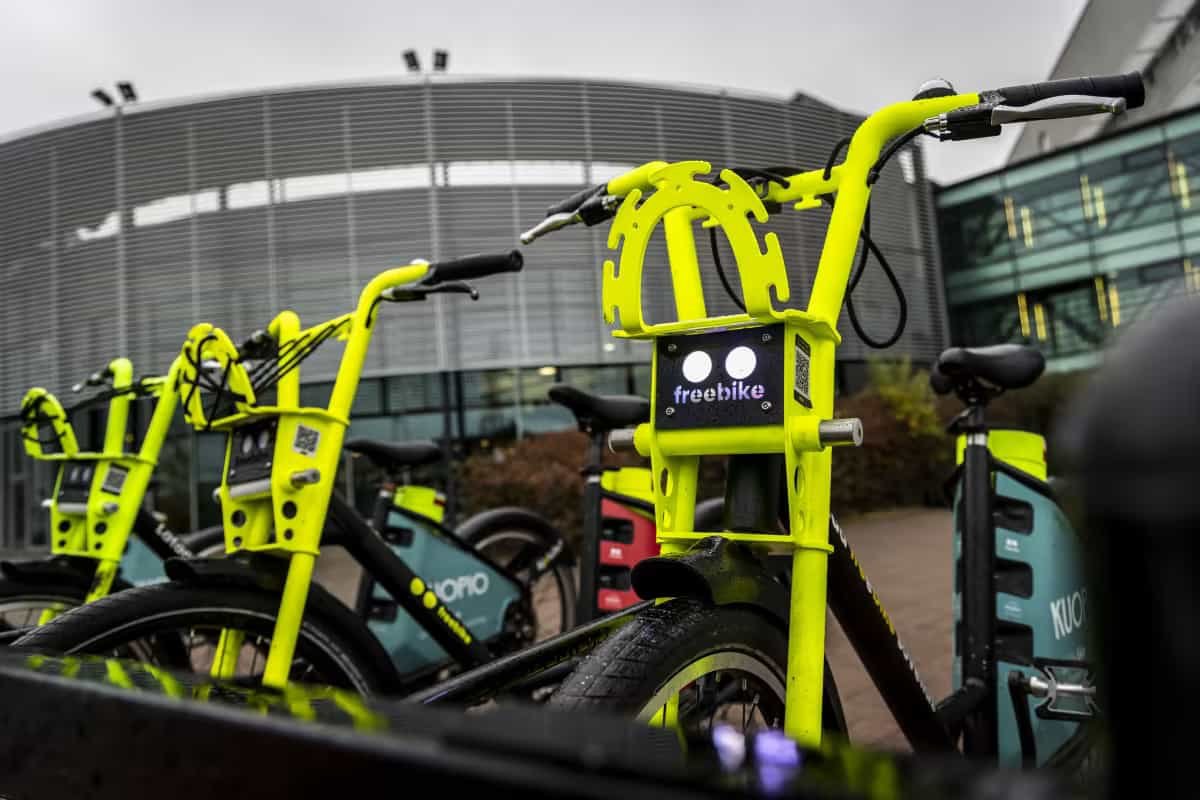
We are a team of people who expect bicycles to become a significant form of micro-mobility. We produce and currently distribute our electric bikes to, for example, Great Britain, Canada, Slovakia, Finland, and of course, we also operate in the Czech Republic.
Said Adam Bartyzal, the company's developer
- Freebike offers electric bike-sharing as public transport in the city or private sector. It is a unique and efficient transport for companies and their employees.
- SAFIRAL is one of the critical suppliers of bicycle electronics. It provides a range of services to its customers, including the assembly of PCB prototypes, pre-series and series production.
- For this particular order, Freebike carried out the development and design independently but gradually moved the serial production of electronics, including test prototypes, to SAFIRAL.
- The companies' cooperation began during the development of the first electric bicycle, which is now celebrating its sixth anniversary. One of the exciting aspects of the collaboration is the special Freebike test equipment. The tester is the result of gradual evolution.
So, how was the development of the test rig? Inspire your team.
The first version was an electronic board in a simple 3D-printed box. It had a large number of cables that connected to the board connectors. The test scenario was recorded on an SD card. Transferring the card to the computer and back was necessary for any modification. Testing was tedious, and cables were breaking. However, the nature of the device and its firmware are part of the current tester.
A lever machine we printed on a 3D printer already represented the second version. We use 3D printing for parts in our bikes and stations, so it seemed like a logical choice over commercial "Bed of nails" testers, which we would have to modify for our needs anyway. However, the "side" lever solution had problems because the pressure was not defined enough, and the pins we chose slipped from the test points.
And so we embarked on the third version. It uses linear guidance, so the additional pressure is uniform. It has exchangeable modules for individual plates and the arrowheads that don't break have worked for us on the pressure plates. We added a control computer to the electronics, which sends scenarios and firmware to the tester for testing. At the same time, it communicates via API with our internal system, so the tested boards are stored in the database. The label with the machine-readable code allows us to simplify wheel assembly and track individual panels' history. The test modules connect via USB and have a new bootloader written so we can update them remotely.Described in detail by Ivan Šumelda, mechanical engineer of Freebike
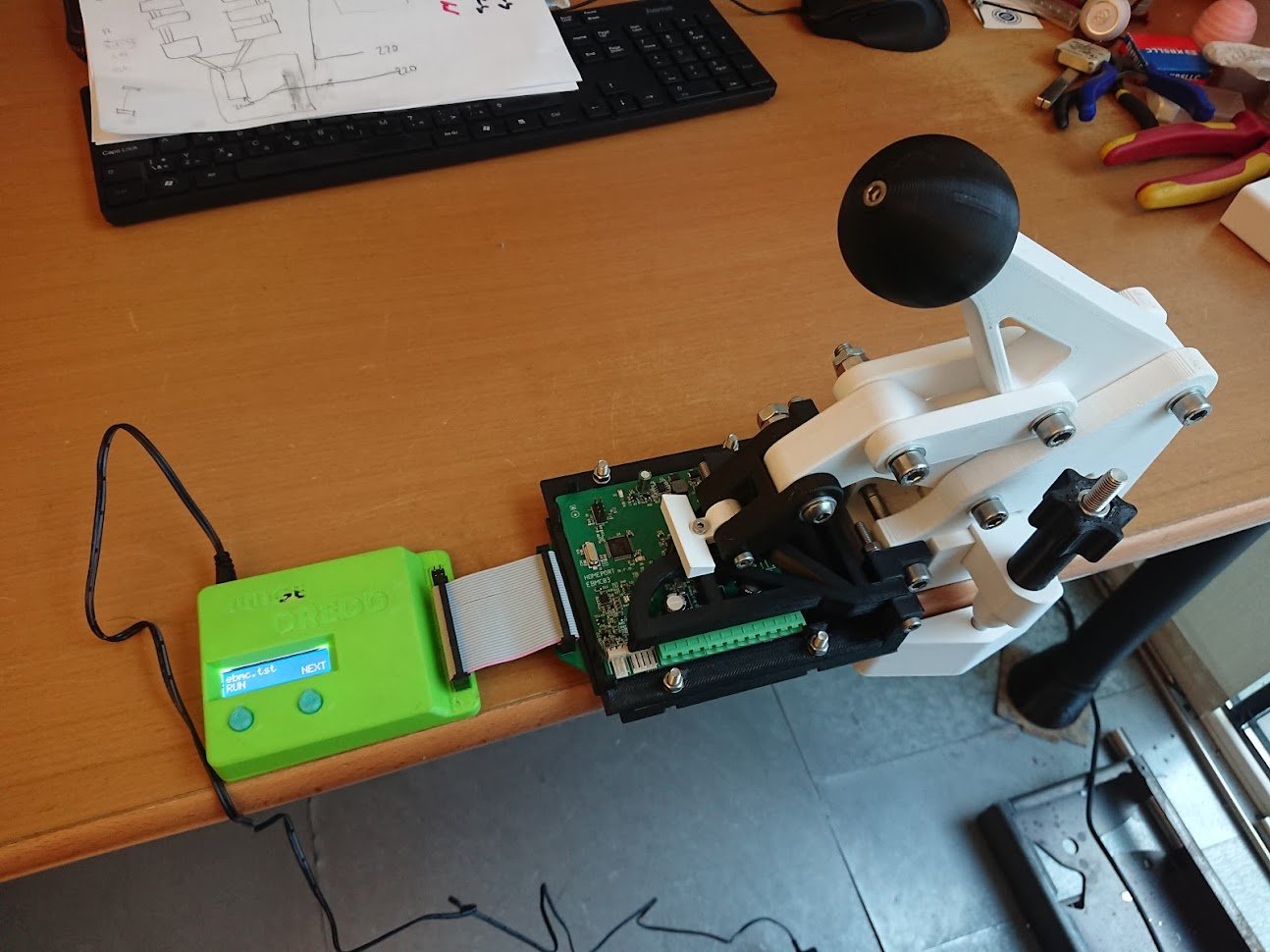
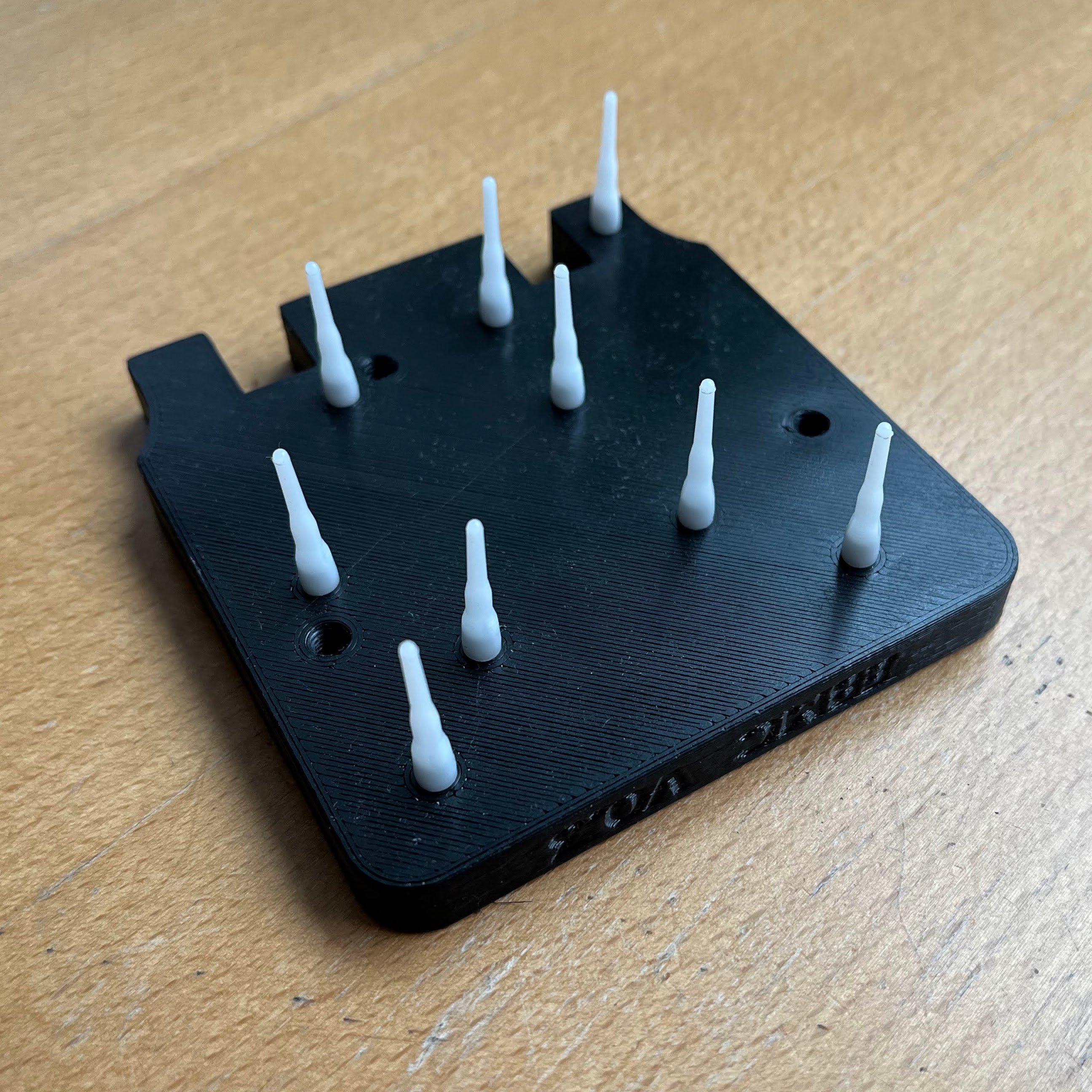
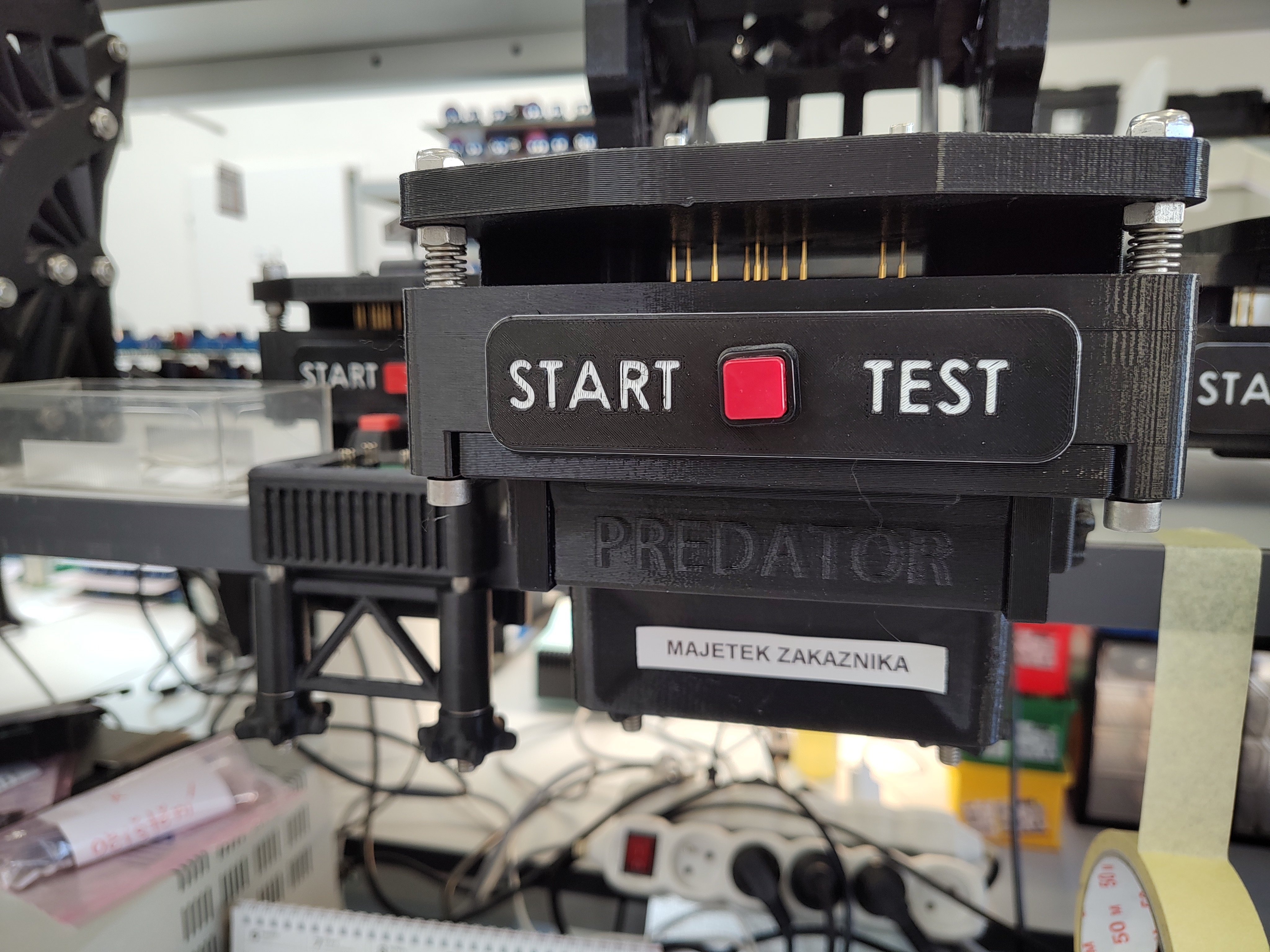
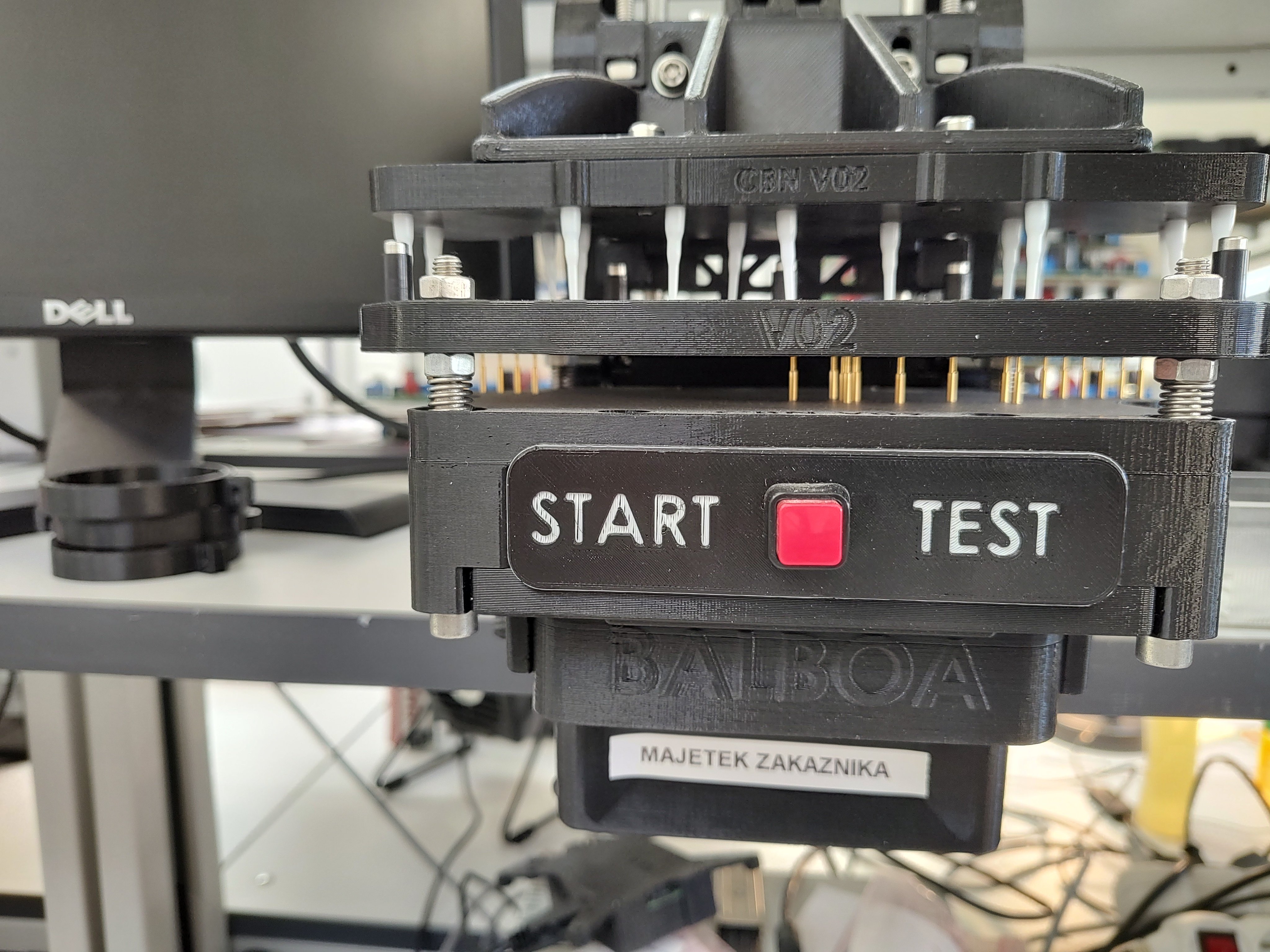
Problems were always solved quickly, and going through a long corporate wheel was unnecessary.
Added Vladimír Černý, chief developer of Freebike

